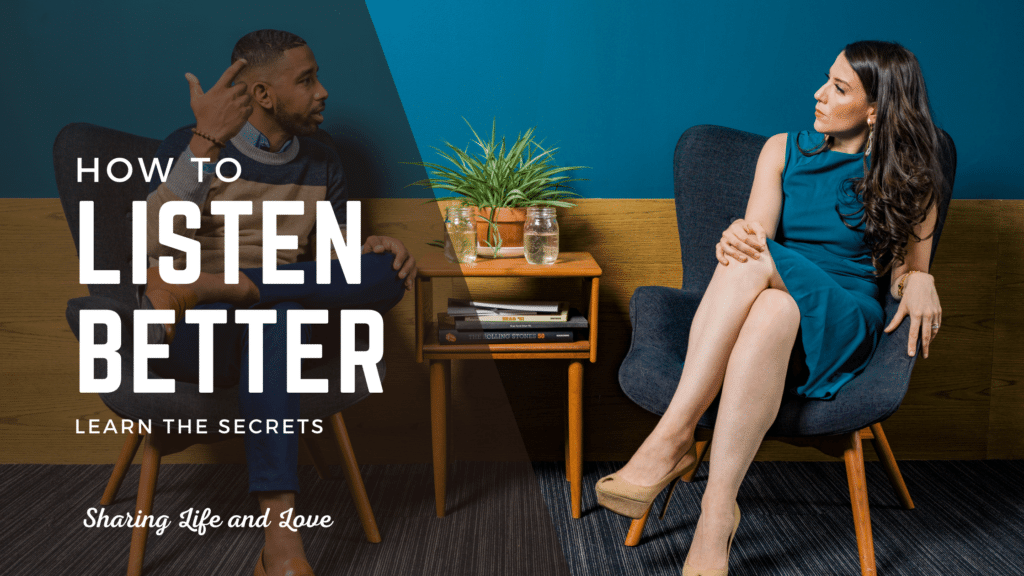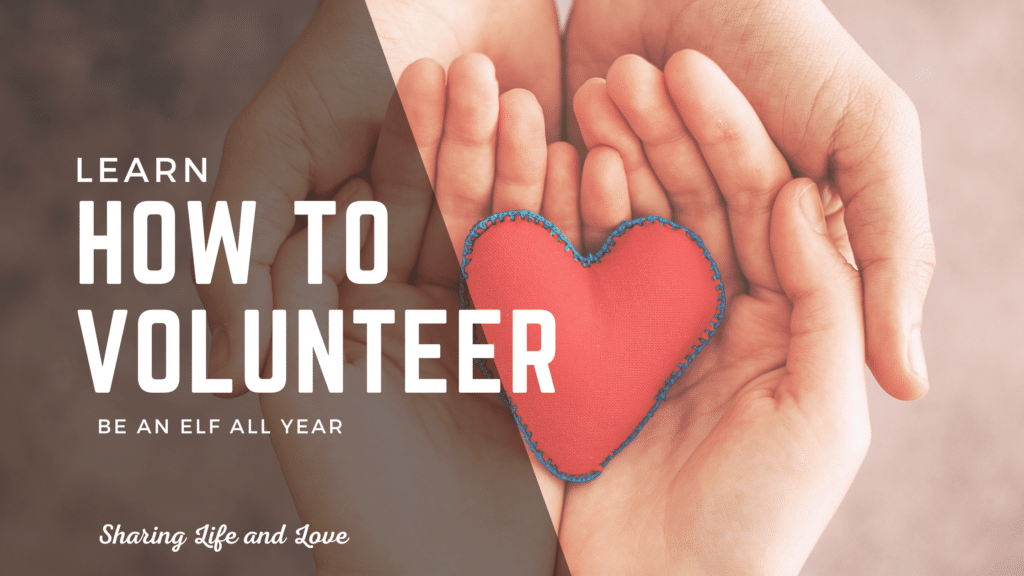If you are hoping to learn why and how to listen better, you will be delighted by this message! We are going to dive headfirst into the reasons why listening is so important. Plus, I’ll give you a ton of tips, suggestions, stories, and encouragement so that you can become a better listener today!
We are going to go through the 10 best reasons why listening is so important! It’s a critical component in communicating effectively. Plus, if you want others to listen to you, it’s a good idea to master your active listening skills! Wouldn’t you agree?
This article is packed with ways that you can become a better listener, so get ready for a lot of fun with information that’s supported by facts! In fact, we’ll even go over some health benefits of listening! It’s true that there are health benefits to listening!
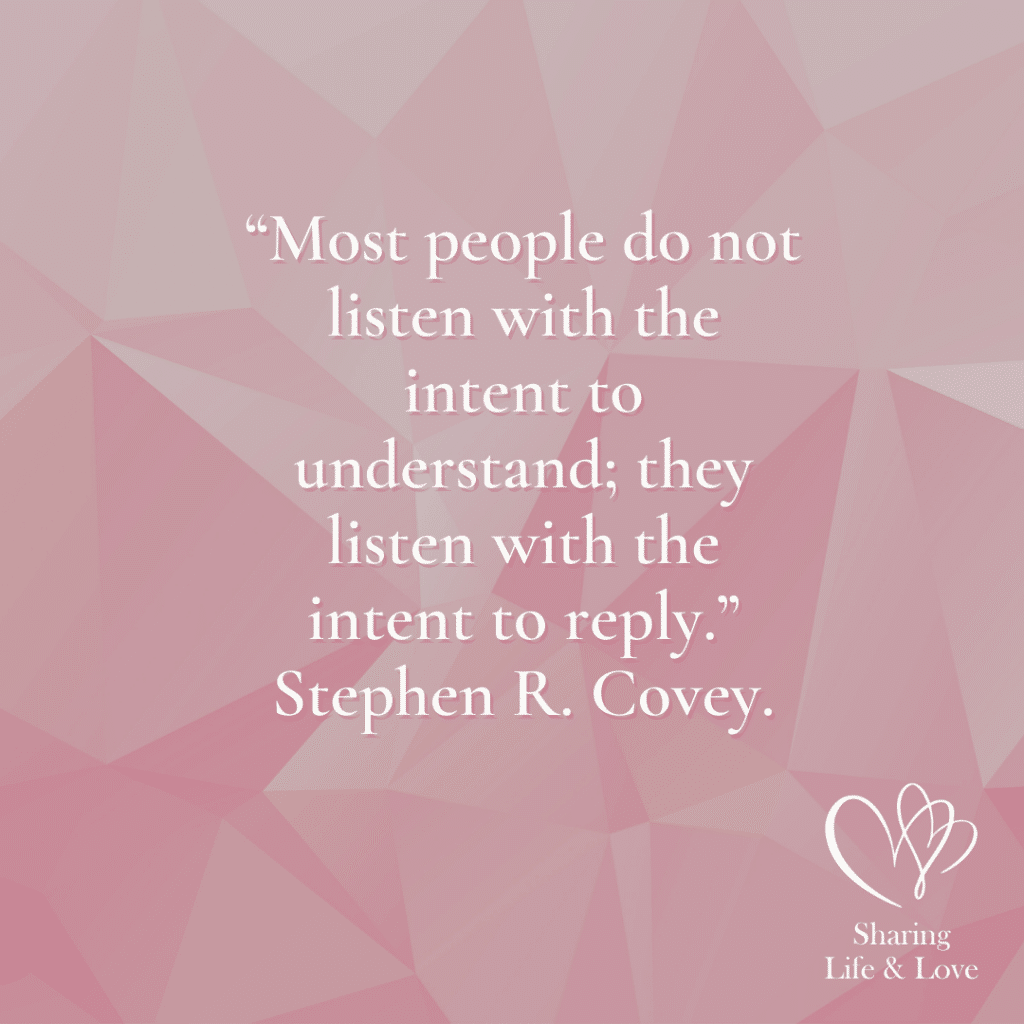
Why Listening Is So Important (Top 10 Reasons)
1. We are losing our listening.
Julian Treasure is a great motivational leader, author, and communication expert, specializing in listening. He says that we are “losing our listening.” Because of the digital age, we want things in sound bites rather than in conversations. We’re very impatient, which makes it very hard for us to have good active listening skills.
Active listening skills are developed when we are present, paying close attention, and not worrying about what we are going to say next. Do you want more clarity on this issue? Let’s look at an active listening skills definition.
According to Indeed, active listening skills are present when we focus completely on the person talking, understand what they are trying to communicate, and respond in a thoughtful manner. What a great definition! The article goes on to say that with active listening, we receive and retain the message in an engaging way.
Active listening uses both verbal and non-verbal communication to maintain attention to the person talking. The definition of “attend,” according to Forbes, is to be present, giving full attention, applying and directing yourself, and grabbing the details. So, when we pay attention, we need to do those things for the person speaking.
This shows that we care about what they are saying to us. Julian goes on to explain that when we listen consciously, something he tries to do every day with his wife, we live fuller lives.
In Julian’s TED talk, 5 Ways to Listen Better, he says that by listening the right way, we connect with the world, understand it better, and can live a more peaceful life! What a great reason to learn how to listen better!
The art of conversation lies in listening.
2. Effective communication is essential.
Effective listening skills are crucial. If we don’t listen to one another, we tend to talk over each other, speaking louder and louder to be heard. This is not productive; in fact, there’s really no point in talking if people listen to only the things that matter the most to them. Instead, you need to listen to everything that is said to you in a conversation.
You may not find all of the words relevant to your life, but a good listener can filter through the muck to find the key points the speaker is trying to make. You want to help others get their message across without distorting it to meet your agenda. If someone is speaking to you about something that doesn’t matter to you, find a way to make it matter.
Instead of rubbing one eye to show boredom and lack of interest in what the speaker says, get creative and find a way to apply it to your life, or make a story out of the message in your mind. Find a way to make it interesting so that you do not lose focus.
In the business world, effective listening leads to better understanding, more input on ideas, and a greater understanding of the expectations of others. It also leads to a more productive employee. Think about it; someone who is motivated to continue working hard is likely to continue this action if he or she is heard and felt valued!
3. We need to be equal partners in relationships.
When you are in a relationship, whether it’s a friendship or a romantic relationship, you need to know how to listen if you aren’t already skilled in this area.
You want your friend or partner to listen to you, right? So, why wouldn’t you want to know how to improve your listening skills?
Let’s look at a few steps you can take to improve your communication skills so that you will be a great partner to your friend or lover.
- Don’t talk over your partner.
- Avoid interrupting when someone is talking.
- Maintain eye contact to show you are paying attention.
- Ask simple follow-up questions or recap what you’ve heard.
- Keep open body language by uncrossing your arms and legs.
- Show appreciation for what is being said by nodding and saying small phrases, like “Ah,” “I gotcha,” or “okay.”
- Once your partner has stopped talking, summarize what you’ve heard to make sure you understand what was said to you.
4. Without listening, we are just making noise.
Have you ever been around someone who made you feel like you were talking to a brick wall? You can tell they are not really listening to what you are saying, so you are less likely to continue sharing your important message with them, right?
If you don’t think you have the ability to listen well, you should learn how to listen better. It’s a crucial skill in the communication field. Without listening, we are just yelling at each other, not paying attention to the words that are being spoken to us.
So, the big question is: How do I learn to listen better?
One suggestion would be to treat each conversation like a mission, where you are going to learn something new. You don’t have to think of it as something tedious and hard that you have to do, but instead, it is an opportunity for you to gain knowledge on something new or see another person’s perspective on a subject you know well.
Another suggestion is to summarize the message you’ve just heard. You can say something like, “This is what I’ve understood so far,” or “I believe this is what you were meaning.”
Then, follow it up with a question asking if you are correct. If so, great job! If not, ask for clarifying details so that you can remember it better this time.
My final suggestion in this section is to talk less and listen more. We were given two ears and one mouth for a reason – we are meant to speak less than we listen. Try to shut your mouth more often and listen for details, clues, and the great mystery behind what the person is trying to tell you.
Listen for emotions, tone of voice, and inflection for further clarity.
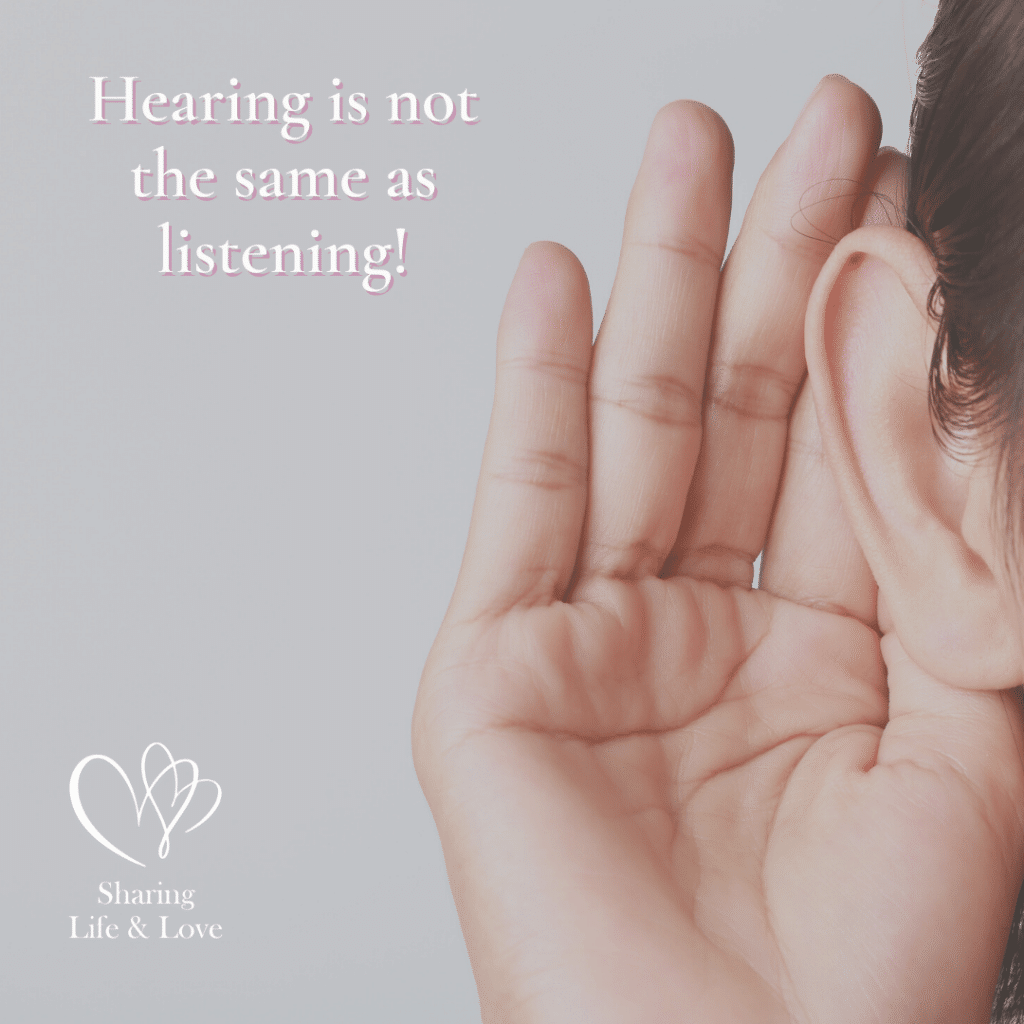
5. We can live fuller lives by listening.
Although, according to Julian’s TED talk, we spend 60% of our time listening, do we really know how to listen effectively? What did you learn from your last conversation?
You can enrich your life with the knowledge of others, but how will you get that knowledge if you don’t know how to listen well and understand even better?
I think the key to gaining this enlightenment is realizing that the other person has something to offer you. You may not see it right away, but it’s there. You just need to look at each talk as a chance for growth in emotional intelligence and an opportunity to become a better listener.
Practice this with your next conversation. If the person is complaining about their job, for example, just listen. Hear the tone of voice, the word choice, the environment he or she is talking about, the time of day – make a clear picture of what you think happened in your head. Write the story and imagine it as if you were there.
If it helps, you can pretend you are watching a television show where someone famous is playing your friend’s character. Do what you need to do in order to stay alert and focused on the details you hear in the conversation. Ask for clarifying details to further develop the picture in your head. This exercise should help you pay attention.
6. Without listening, we are often misunderstood.
People often listen with their ears and not their hearts. We need to be open-minded when we hear another person share a story with us. They are opening themselves up to what they believe we want to hear or what they feel they need to share at this moment. Now is not the time to be judgmental or critical of what they are saying.
It takes time to speak, and they are using that time and energy to talk to you. You should feel almost honored that you have been chosen as the main member of the audience. True, there are some people who just love to hear the sound of their own voice and will talk to anyone, but many people are reserved. They don’t share easily.

To better show your appreciation for being part of the conversation, there are a few things you can do. Keep your attention on the speaker to show you are really hearing the message, give appropriate responses when needed, and nod your head, giving other relevant body language cues when the moment calls for them.
For example, don’t cross your arms or legs. Those signal boredom or uncomfortable feelings. It might indicate that you are not enjoying the conversation.
Instead, maintain eye contact, lean in, and really focus on the person talking. This will help you stay alert and aware of what’s being said, so there are no misunderstandings.
If you think that there may be a misunderstanding, be sure to summarize what you’ve heard after the speaker is done talking.
Give a recap of what you’ve understood. If you’ve understood everything correctly, you’ve done an excellent job at listening. Gold star!
If you’ve missed the point, just ask the speaker to clarify the parts you did not understand.
7. Honesty breeds respect, trust, and understanding.
When your best friend explains that she has had a rough time with her boss, she is being honest with you about something that she probably doesn’t share with just anyone. This means she trusts you and respects your opinion. She knows you will understand what she’s saying, what she means, and her feelings.
Being able to be honest and sincere with one another through communication means that you are tight friends, the type of close friends that can share anything with one another.
One of the most sincere forms of respect is actually listening to what another has to say.
If you are struggling to make friends like this as an adult, you aren’t alone! I’ve gotten dozens of emails from people just like you who have said they wished they knew some of the things I talked about in my articles years ago. It can be tough to meet people when you aren’t out and about that much.
Have faith that the opportunities to meet people and grow friendships will present themselves at the right time. Hang in there, and in the meantime, wherever you are in life or just physically, strike up a conversation and start practicing these listening skills!
8. Understanding leads to less stress.
If you strive to understand what the speaker is saying and they treat you the same way, you will have more peace in your life because both you and your partner (whether that is a friend or lover) care about each other enough to have empathy and love. When you have someone who is there for you like that, you feel more peaceful and less stressed.
A reduced amount of stress can lead to lower blood sugar, a healthier weight, better sleep at night, a healthier immune system, a better mood, and lower blood pressure.
According to the Office of Disease Prevention and Health Promotion, not only will you experience these great side effects of less stress, but you’ll also get along better with your loved ones! I’m sure that your friends and family members would appreciate you being in a better mood and being healthier, so start improving your listening skills!
9. We can find solutions to problems by listening to others.
Keeping an open mind and maintaining an open-door policy when it comes to talking will open you up to more conversations. If you are a business professional, you may find this especially helpful when working with others. Start listening more and talking less, and watch the possibilities grow!
The more you listen to others, the greater chance you have of finding the solution to your problem in the mix of answers. Ask for feedback or ideas from your employees or friends if you mostly talk at home.
By asking for the opinion of others, you are showing an openness, an eagerness, and a willingness to listen to the ideas and thoughts of others.
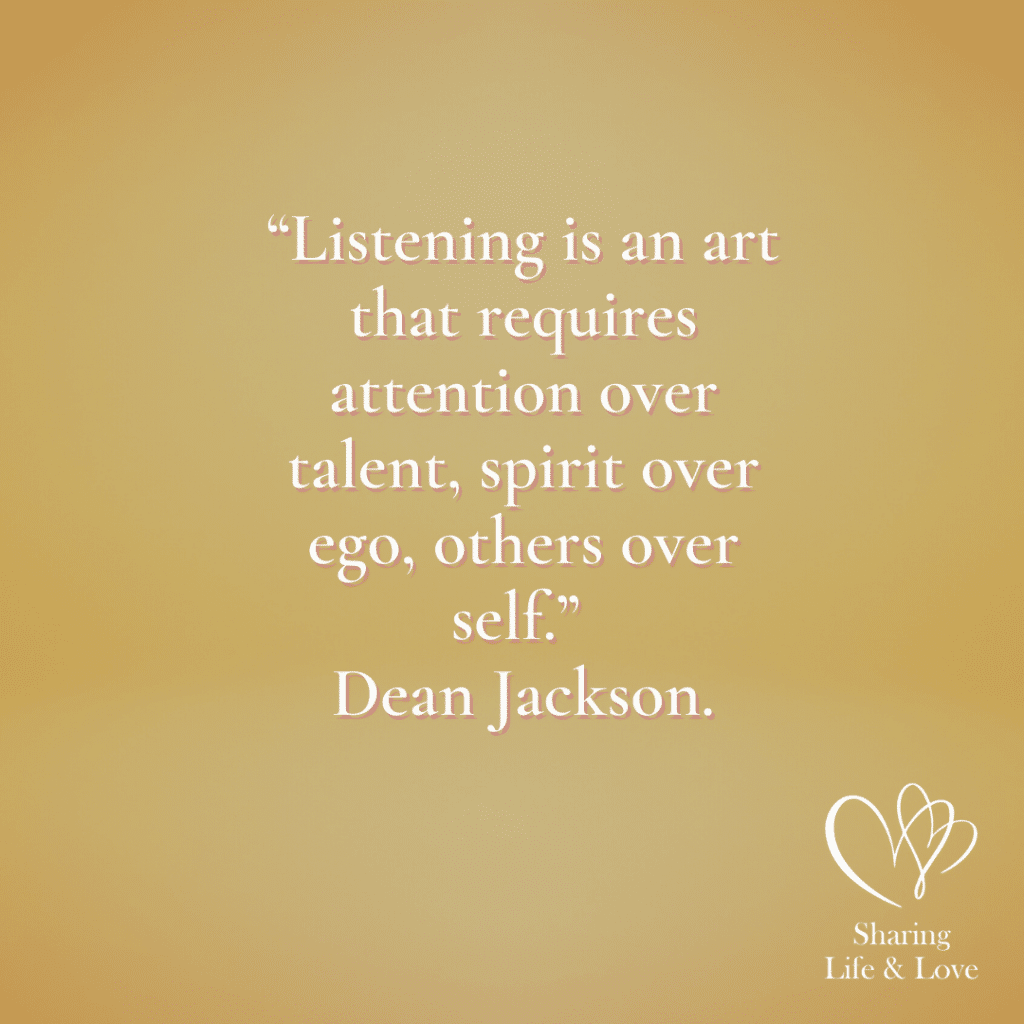
10. Effective communication can lead to conflict resolution.
This one may be a no-brainer, but I bet you are still struggling with conflict resolution with someone in your life. I like to think about emotional intelligence, the ability to recognize, regulate, and manage your emotions. Once you have them under control, you can move on to the emotions of others.
I do not want to gloss over the regulation of your own emotions, as this is not something that is easy to do, but you can, over time, master your emotions and have balance in your life. You’ll be able to determine what triggers you to act in a certain way and avoid that particular trigger or find a solution that works for you when it’s present.
Now, let’s say you’ve got emotional intelligence on your to-do list and are on your way to being a pro at it. The next step is to recognize and respond to the emotions of others. Watch for tone, inflection, and word choice for cues as to how the person is feeling. Then, you can respond accordingly with relevant follow-up questions.
Conclusion
Well, we’ve covered a LOT of information about how to listen better and why listening is so important. I hope you have taken or will take some of my suggestions into play in your life, so you are richly blessed with the benefits that come from listening.
Be sure to check out my free resources and shop if you love my work! If you’d like to learn more about me, head over to the About section of this website.
I’d love to hear from you! Please leave a comment, and let me know if you’ve enjoyed this article on listening or what self-improvement topics you’d love to hear more about!
While I do come up with my own topics, I welcome the opinions and thoughts of others, so please contact me if you have a suggestion!

